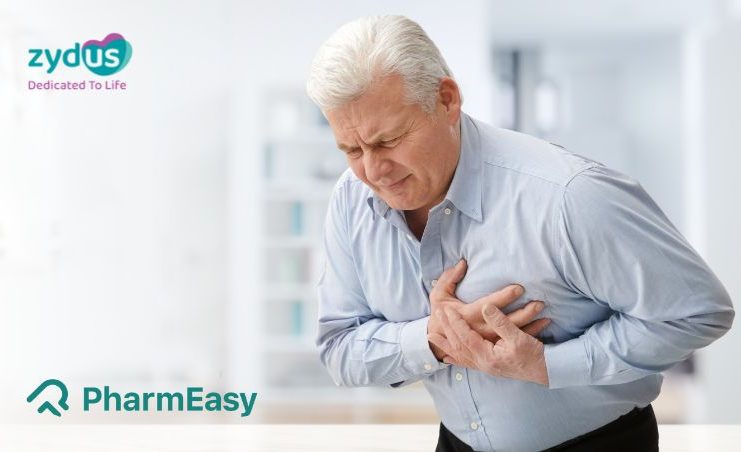Why Do More People Get Heart Attacks In Winter?
By Dr. Nikita Toshi +2 more

Get,

to manage your symptom
Get your,


4 Cr+ families
benefitted

OTP sent to 9988776655



You’ve successfully subscribed to receive
doctor-approved tips on
Whatsapp

Get ready to feel your best.

Hi There,
Download the PharmEasy App now!!


Register to Avail the Offer
Send OTPBy continuing, you agree with our Privacy Policy and Terms and Conditions

Hi There,
Sign up on PharmEasy now!!
Trusted by 4 crore+ families

OTP sent to 9988776655



You have unlocked 25% off on medicines




Code: NU25
By Dr. Nikita Toshi +2 more
Table of Contents
Heart attacks are worrisome in their own right, but did you know that data shows heart attacks (and strokes) are more common in the winter? Several studies over the years have confirmed that this statistic is certainly not a fluke, which has led to further investigation.
Why more heart attacks in winter? What could be causing this phenomenon and is there any way you can lower your risk? The great thing is that since its discovery, many doctors and cardiology experts have put forth the potential causes for this rise. Let’s understand the issue and later look at what you can do to stay away from this health issue.

Before we get into the probable causes, first we need to understand what it means when we say that there are more heart attacks in the winter months. Let’s take an imaginary hospital as an example. If we make a list of all patients who come to this hospital during 1 year, for some reason we will see that during the colder months more people had heart attacks. According to some studies (conducted in the real world), there may be a 31-33% higher incidence of heart attacks in winter and every 1-degree Celsius drop in temperature came with a 0.49% increase in deaths from all causes.
While the above reasons and mechanisms are universal to humans, it’s not that any one of them can cause a heart attack. Rather, each factor plays a part in successively increasing the risk but even all these things together may not be enough. It comes down to being at risk for a heart attack before the cold weather. People who are already at risk may find their bodies pushed to the limits during winter, which may potentially lead to a higher risk of a cardiac incident.
Most cardiologists suggest that older people, those who smoke or drink regularly and those who do not get any regular activity are most at risk. By limiting your exposure to colder temperatures and keeping up a regular amount of daily physical activity, these people may be able to lower their risk of a heart attack in winter.
With winter coming around soon, we want to stress that the purpose of this post is not to cause fear and alarm. There are plenty of things you can do to stay fit-
If you are someone who is at risk, you may want to do blood pressure and blood sugar check-ups regularly and maintain them in a healthy range. Additionally, you can always speak with your doctor if you are worried about how to handle the upcoming season. Don’t forget that staying happy and stress-free is always recommended for good health.
Disclaimer: The information included on this site is for educational purposes only and is not intended to be a substitute for medical treatment by a healthcare professional. Because of unique individual needs, the reader should consult their physician to determine the appropriateness of the information for the reader’s situation.
Disclaimer: The information provided here is for educational/awareness purposes only and is not intended to be a substitute for medical treatment by a healthcare professional and should not be relied upon to diagnose or treat any medical condition. The reader should consult a registered medical practitioner to determine the appropriateness of the information before consuming any medication. PharmEasy does not provide any guarantee or warranty (express or implied) regarding the accuracy, adequacy, completeness, legality, reliability, or usefulness of the information; and disclaims any liability arising thereof.
Links and product recommendations in the information provided here are advertisements of third-party products available on the website. PharmEasy does not make any representation of the accuracy or suitability of such products/services. Advertisements do not influence the editorial decisions or content. The information in this blog is subject to change without notice. The authors and administrators reserve the right to modify, add, or remove content without notification. It is your responsibility to review this disclaimer regularly for any changes.

Leave your comment...
Comments